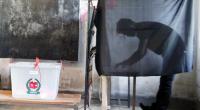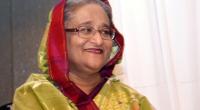 Since the signing of the Standard Operating Procedures (SOPs) with European Union in 2017, a total of 185 illegal Bangladeshi migrants returned to the country, says the foreign ministry.
Since the signing of the Standard Operating Procedures (SOPs) with European Union in 2017, a total of 185 illegal Bangladeshi migrants returned to the country, says the foreign ministry.
“Bangladesh is set for a meeting of the Joint Working Group with EU on Apr 5 at its headquarters in Brussels to discuss the latest updates of the process that began one and a half year ago,” an official told Bangla Tribune on Monday (Apr 1).
In September 2017, Dhaka and Brussels signed the agreement when Bangladesh said it believes taking back some 'irregular migrants' from the EU would keep the legal migration open to the 28-nation bloc.
Irregular migration refers to the illegal movement of people to work in a country without authorisation to work. However, according to the International Organisation for Migration, there is no clear or universally accepted definition of the term.
“The instrument [signed with the EU] is working well as it was previously said that thousands of Bangladeshis are living in Europe illegally, but the EU is yet to provide an official list [of illegal Bangladeshis until now,” the foreign ministry official said.
Dhaka has made it clear to Brussels that it would bring back “each and every” illegal migrants, when the instrument was signed, according to him.
“And in 18 months, less than 200 people have been identified and brought back, but the European countries have never provided us an exact figure of Bangladeshis living in Europe illegally,” added the official.
On the matter likely to be discussed in the Brussels meeting, the foreign ministry official said that the talks would centre on the implementation of a $5.5 million EU-funded project.
The projects aim to create an access to the Election Commission’s database to confirm identities of illegal migrants, whom the European authorities claim to Bangladeshi citizens.
A special unit will be also set up at the police’s Special Branch to record finger prints and other biometric details of illegal migrants who returned from Europe.
The project also covers rehabilitation for Bangladeshis brought back from European countries.
According to the SOPs signed with EU, all administrative and legal issues must be completed before a Bangladeshi irregular migrant can be sent back.
It was also agreed that the citizenship of an irregular migrant has to be confirmed before deportation.
In line with the SOP, no more than 100 Bangldeshis cannot be sent each month during the first six months [of the signing] and Dhaka has to be consulted before raising the number.
Immigration has been a prime concern for the 28-nation bloc amid the spike in arrivals across the Mediterranean since 2014.
The issue came to the fore after an alarming trend of Bangladeshis risking their lives to cross the Mediterranean Sea, particularly from Libya, to reach Europe, especially Italy.
Most of those Bangladeshis did not leave the war-torn Libya, despite government warnings, after the ouster of Gaddafi and subsequent civil war.
Bangladeshis made up the single largest group of illegal migrants to European shores in the first quarter of 2017, London-based newspaper The Independent reported in May the same year.
It said more than 2,800 Bangladeshis arrived on European shores from North Africa in the first three months of 2017, compared to only one over the same period in 2016.
According to figures by the European Union, some 200,000 Bangladeshis are living in the 27 European countries legally, which excludes the UK, as of December 2016.
 National
National
41391 hour(s) 57 minute(s) ago ;
Morning 10:51 ; Monday ; Jul 07, 2025
Nearly 200 illegal migrants return from Europe in 18 months
Send
Sheikh Shahariar Zaman and Jamal Uddin
Published : 23:56, Apr 01, 2019 | Updated : 23:57, Apr 01, 2019
Published : 23:56, Apr 01, 2019 | Updated : 23:57, Apr 01, 2019
0 ...0 ...
/zmi/
Topics: Top Stories
- KOICA donates medical supplies to BSMMU
- 5 more flights to take back British nationals to London
- Covid19: Rajarbagh, Mohammadpur worst affected
- Momen joins UN solidarity song over COVID-19 combat
- Covid-19: OIC to hold special meeting
- WFP begins food distribution in Cox’s Bazar
- WFP begins food distribution in Cox’s Bazar
- 290 return home to Australia
- Third charter flight for US citizens to return home
- Dhaka proposes to postpone D8 Summit
Unauthorized use of news, image, information, etc published by Bangla Tribune is punishable by copyright law. Appropriate legal steps will be taken by the management against any person or body that infringes those laws.
Bangla Tribune is one of the most revered online newspapers in Bangladesh, due to its reputation of neutral coverage and incisive analysis.
F R Tower, 8/C Panthapath, Shukrabad, Dhaka-1207 | Phone: 58151324; 58151326, Fax: 58151329 | Mob: 01730794527, 01730794528


